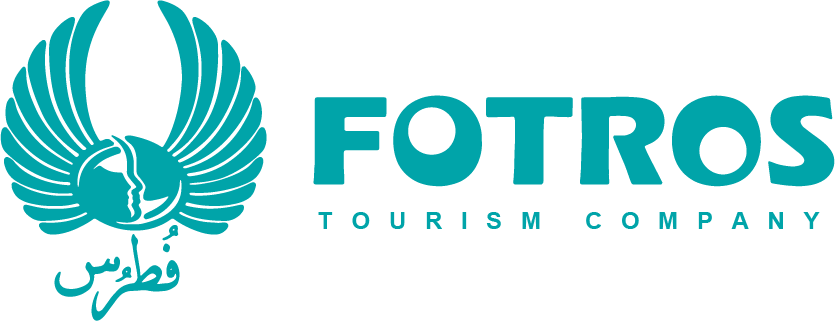
Medical Surgeries
Pancreatectomy


Pancreatectomy is a surgical procedure in which a part or the entire pancreas is removed. The pancreas is an organ located behind the stomach and plays a crucial role in regulating blood sugar levels by producing insulin and other digestive enzymes. Pancreatectomy is typically performed to treat various medical conditions, including pancreatic cancer, chronic pancreatitis, or other pancreatic diseases. The suitability of this procedure for women depends on their specific medical condition and overall health.
several types of pancreatectomies:
Partial Pancreatectomy: In this procedure, only a portion of the pancreas is removed. It is commonly performed for benign tumors, cysts, or other localized issues within the pancreas. After a partial pancreatectomy, some pancreatic function can be preserved.
Distal Pancreatectomy: This type of pancreatectomy involves the removal of the tail (the left side) of the pancreas. It may be performed for conditions like tumors or chronic pancreatitis affecting the left side of the pancreas.
Whipple Procedure (Pancreaticoduodenectomy): The Whipple procedure is a major surgery that involves the removal of the head of the pancreas, the duodenum (the first part of the small intestine), the gallbladder, and a portion of the bile duct. This procedure is most often used to treat pancreatic cancer and other conditions affecting the head of the pancreas.
The suitability of a pancreatectomy for a woman depends on her specific medical condition, overall health, and the potential risks and benefits of the procedure. Pancreatectomies are major surgeries and can have significant impacts on digestion, blood sugar control, and overall health. Therefore, the decision to undergo a pancreatectomy is made on a case-by-case basis after a thorough evaluation by a medical team, which includes a surgeon, oncologist, and other specialists.


It's essential for women considering a pancreatectomy to discuss their options, potential outcomes, and associated risks with their healthcare provider to make an informed decision about whether the procedure is suitable for their specific situation.
Pancreatectomy is a surgical procedure in which a part or the entire pancreas is removed. The pancreas is an organ located behind the stomach and plays a crucial role in regulating blood sugar levels by producing insulin and other digestive enzymes. Pancreatectomy is typically performed to treat various medical conditions, including pancreatic cancer, chronic pancreatitis, or other pancreatic diseases. The suitability of this procedure for women depends on their specific medical condition and overall health.


Before the Pancreatectomy:
Preoperative Evaluation: You will undergo a thorough medical evaluation to assess your overall health and suitability for surgery. This may include blood tests, imaging scans, and other tests.
Discussion with the Surgeon: Talk to your surgeon to understand the specifics of the procedure, potential risks, and expected outcomes.
Dietary Restrictions: Your healthcare team may recommend specific dietary restrictions before the surgery to prepare your body for the procedure.
Social Support: Arrange for a friend or family member to assist you during your recovery, as you may need help with daily activities.
Medication Review: Discuss with your healthcare provider which medications you should stop taking before the surgery, especially blood-thinning medications.
After the Pancreatectomy:
Pain Management: After surgery, you will experience some pain and discomfort. Your healthcare team will provide pain management medications to keep you as comfortable as possible.
Hospital Stay: The length of your hospital stay will depend on the type of pancreatectomy and your individual recovery. It can range from a few days to several weeks.
Diet: Initially, you'll be on a clear liquid diet and gradually progress to solid foods as tolerated. You may need to take digestive enzymes to help with food absorption, especially if a significant portion of the pancreas has been removed.
Monitoring: Your healthcare team will closely monitor your condition, checking for any complications or signs of infection. This may include blood tests and imaging.


Wound Care: You'll need to take care of your surgical incision site, keeping it clean and dry, and following your surgeon's instructions for wound care.
Physical Activity: Gradually, as you recover, you'll be encouraged to increase your physical activity. This may involve walking or other gentle exercises.
Pain and Symptom Management: Pancreatectomies can lead to various side effects, such as changes in digestion, blood sugar levels, and weight. Your healthcare team will help manage these symptoms and adjust your treatment plan as needed.
Long-Term Care: Depending on the extent of the surgery, you may need to make long-term adjustments to your diet and lifestyle. Regular follow-up appointments with your healthcare team are essential to monitor your progress and address any issues.
Emotional Support: Coping with the physical and emotional challenges of a pancreatectomy can be difficult. Consider seeking support from a therapist, counselor, or support groups to help you and your loved ones manage the emotional aspects of recovery.
It's important to follow your healthcare provider's instructions closely and maintain open communication throughout the entire process to ensure the best possible outcome and quality of life after a pancreatectomy.


Why Iran:
Iran, like many other countries, can be a suitable location for performing a pancreatectomy under the right circumstances. Pancreatectomy is a surgical procedure to remove part or all of the pancreas, and the suitability of any location for this procedure depends on several factors, including medical expertise, infrastructure, and patient-specific considerations. Here are some reasons why Iran might be a suitable location for pancreatectomy:
Skilled Surgeons: Iran has a well-established medical community with skilled surgeons and healthcare professionals who are experienced in performing complex surgical procedures, including pancreatectomy.
Medical Facilities: Major cities in Iran, such as Tehran, have modern hospitals and medical facilities equipped with state-of-the-art technology for surgical procedures, making them suitable for complex surgeries like pancreatectomy.
Cost-Effective Healthcare: Medical services in Iran are often more cost-effective than in many Western countries, which can make pancreatectomy more affordable for patients without compromising the quality of care.
Accessibility: Iran is easily accessible for patients from neighboring countries, making it a convenient option for those who may need to travel for medical treatment.
Medical Tourism: Iran has been promoting medical tourism in recent years, attracting patients from various countries for medical procedures, including pancreatectomy. This has led to increased investments in healthcare infrastructure and the training of medical professionals.
Multilingual Healthcare Professionals: Many healthcare professionals in Iran are proficient in English and other languages, which can facilitate communication with international patients.
It's essential to keep in mind that the suitability of any location for a pancreatectomy or any other surgical procedure depends on various factors, including the patient's specific medical condition, the surgeon's expertise, and the availability of necessary resources. Patients considering medical treatment abroad should consult with their healthcare providers and conduct thorough research to ensure the procedure is performed in a safe and appropriate manner. Additionally, they should consider the potential challenges of traveling for medical care, such as language barriers and follow-up care arrangements.
Our services include:
![]() our online services include: quotes and consultation
our online services include: quotes and consultation
![]() Planning the highest word-level medical trips and quality hospitals and medical centers according to the patient's request and budget.
Planning the highest word-level medical trips and quality hospitals and medical centers according to the patient's request and budget.
![]() Appointing treatments by the most skilled and experienced doctors.
Appointing treatments by the most skilled and experienced doctors.
![]() Airport pick-up/drop off, check-ups, accompanying translator, book hotel (for patients and their families)
Airport pick-up/drop off, check-ups, accompanying translator, book hotel (for patients and their families)
![]() Pre-hospitalization / post-hospitalization care services
Pre-hospitalization / post-hospitalization care services




All-Inclusive Medical Travel Packages
based on your budget, our team will assist you in choosing the best hotels, doctors, and medical centers. Our packages include:
 Airport Pickup Services
Airport Pickup Services Airport Dropoff services
Airport Dropoff services Hotel
Hotel Ticket
Ticket visa
visa translator
translator Transfer
Transfer SIM Card
SIM Card Sightseeing
Sightseeing
 why Iran
why Iran
Patients may choose to have abdominoplasty (commonly known as a tummy tuck) in Iran for a variety of reasons
Cost, Quality of Care, Privacy and Discretion, Combined Tourism, no Waiting Times
![]()
Fotros is an Iranian health tourism company with a professional team consisting of a support team and word-level doctors in medical and cosmetic surgeries like Neurosurgery, Rhinoplasty, Breast cosmetic surgeries, Liposuction, tummy tuck, etc.










 why Iran
why Iran